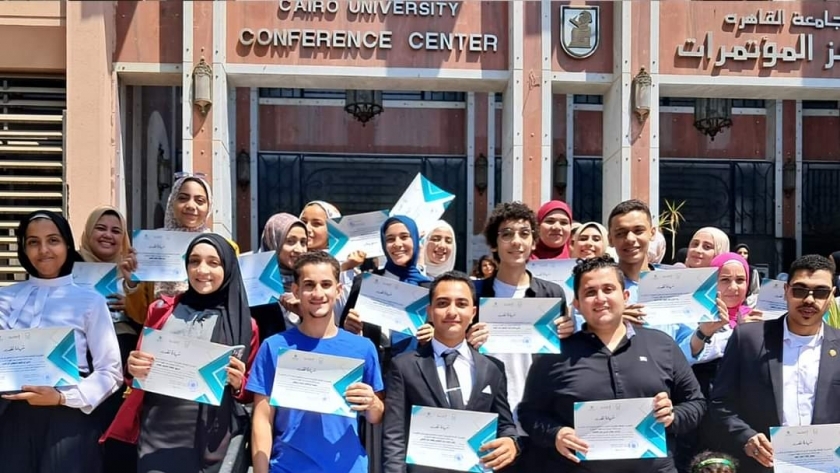The Ministry of Communications and Information Technology (MCIT) and the Decent Life Foundation have concluded the first phase of the Decent Life Technology Ambassadors program, launched in July as part of the Digital Egypt Ambassadors national initiative.
A graduation ceremony for the first cohort of the program was held at Cairo University, with participation from officials of MCIT and the Foundation. The event featured the honoring of graduates, the presentation of certificates, and showcases of the graduates’ achievements during the program.
The first cohort comprised 580 students from Egyptian universities, including Cairo University, Kafr El-Sheikh University, Mansoura University, Sohag University, and Zagazig University.
The program aims to develop digital knowledge ambassadors by providing non-ICT undergraduates with essential digital literacy training, knowledge, and skills to keep pace with rapid technological advancements. It includes in-depth training, specialized sessions, and workshops.
The program embodies MCIT vision to build a safe, productive, and sustainable interactive digital society. It is part of the Ministry’s ongoing efforts and significant role in community development, particularly in building youth capacities. This initiative also aligns with the continuous cooperation between MCIT and the Decent Life Foundation to promote digital culture in the villages served by the Decent Life Initiative through awareness seminars for citizens.
Furthermore, the program is part of the Decent Life Foundation’s Agile Youth plan for building youth capacities and developing their skills. The Technology Ambassadors program aligns with the Foundation’s efforts under the umbrella of the National Alliance for Civil Development Work and its collaboration with MCIT to upskill and empower youth in technology and innovation to navigate future challenges.
The initiative successfully focused on three main pillars: empowering youth with the digital skills needed for the labor market, raising awareness about the importance of technology in local communities, particularly in rural areas, and building bridges of communication between different generations through youth participation in community development.


